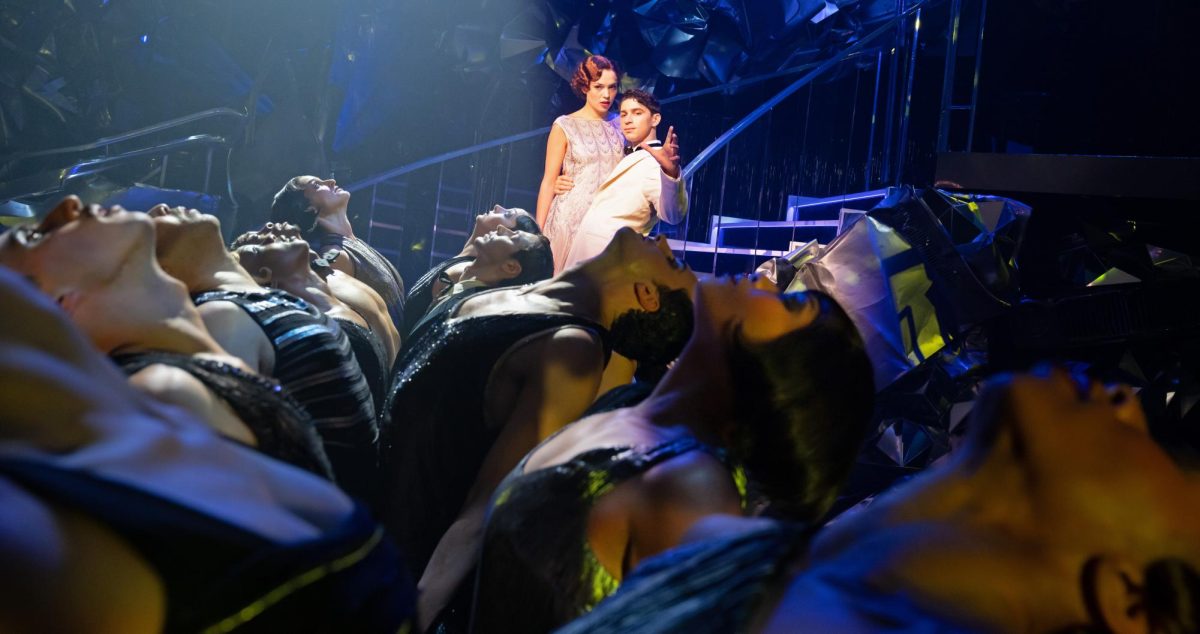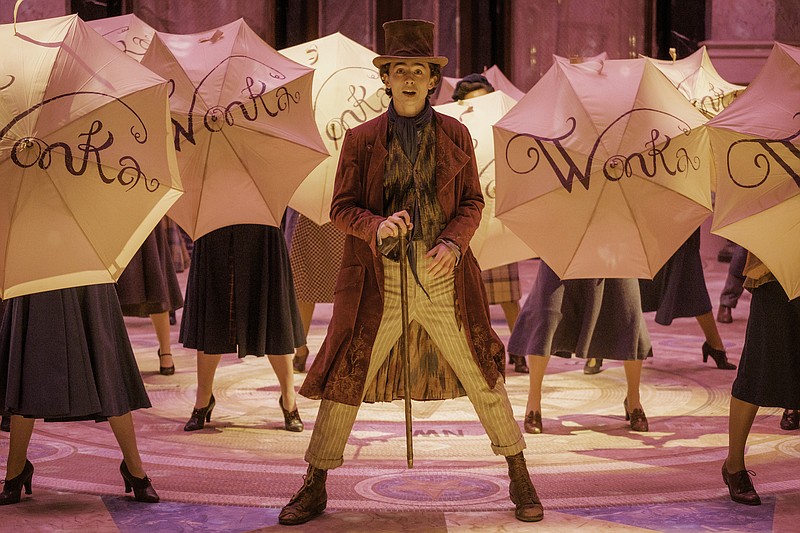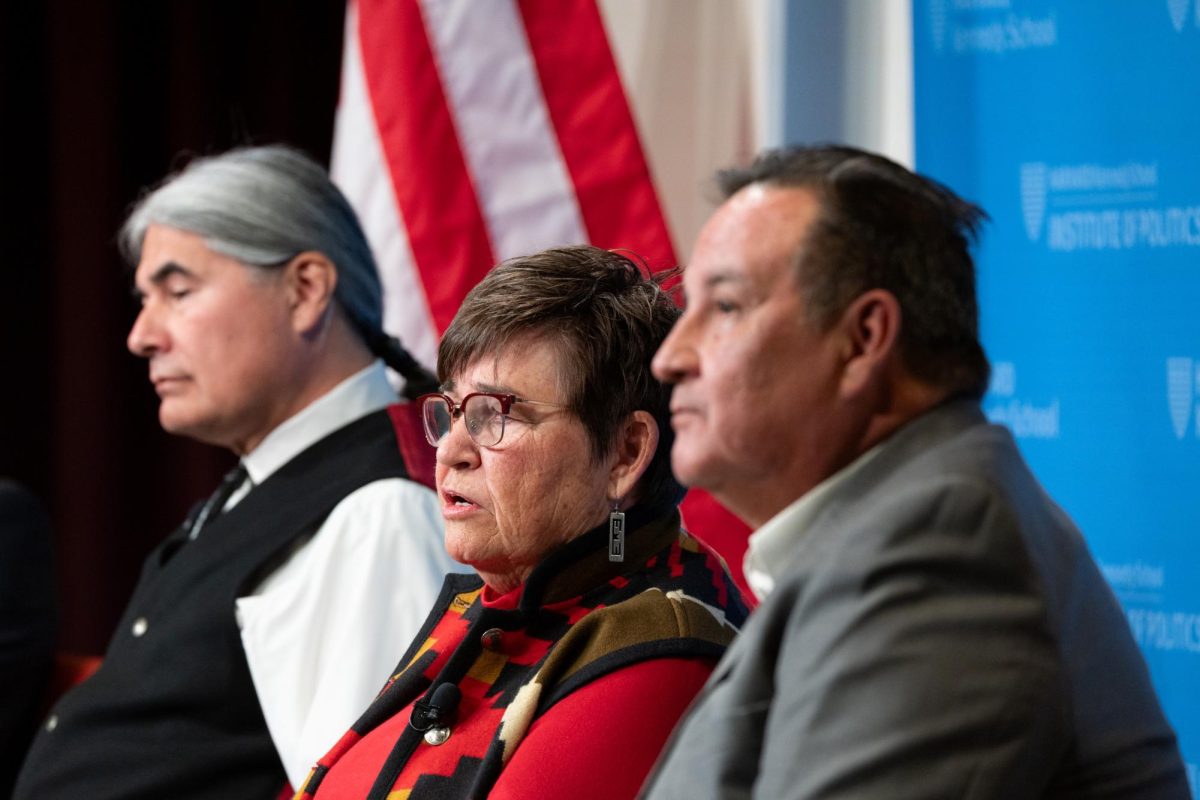“The Great Gatsby” by F. Scott Fitzgerald, the nearly 100-year-old novel that most Americans can’t avoid reading in high school, has interesting commentary on the American Dream, but it really only gets exciting once there’s a car crash.
However, when brought to the stage of the American Repertory Theater at Harvard University in musical form, “Gatsby: An American Myth,” combines stunning visuals with compelling characters to tell a dramatic and modernized story.
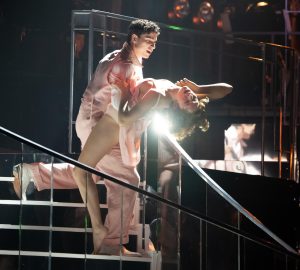
In its world premiere in Cambridge, Mass., through Aug. 3, 2024, “Gatsby” is staged by Tony Award-winning director Rachel Chavkin (“Hadestown”) with a humorous book by Pulitzer Prize winner Martyna Majok (“Cost of Living”) and a musical score by Florence Welch of Florence + The Machine and Oscar and Grammy Award nominee Thomas Bartlett.
On a steely set of staircases and crunched-up automobiles by Tony Award-winning scenic designer Mimi Lien (“Natasha, Pierre, & The Great Comet of 1812”), the musical follows the charismatic Nick Carraway (the entertaining Ben Levi Ross of “Tick, Tick… Boom” and Broadway’s “Dear Evan Hansen”) who moves to Long Island in 1922. His charming neighbor, Jay Gatsby, is a newly rich man with a mysterious past who is in love with Nick’s wealthy cousin Daisy. However, Daisy, who lives across the bay, is already married to the arrogant Tom.
An exceptional ensemble weaves in and out of the narrative in dark and slinky 1920s costumes by three-time Academy Award-winning costume designer Sandy Powell (“Shakespeare in Love,” “The Aviator,” and “The Young Victoria”).
Although the show is set in the Roaring ’20s, the musical score is composed of modern ballads that showcase the strong vocals of the lead actors, and poppy ensemble numbers that utilize the laudable dance skills of the ensemble.
Tony Award-winning choreographer Sonya Tayeh (“Moulin Rouge”) incorporates everything from Charleston steps to Fosse-esque, modern, commercial jazz, musical theater, and tap choreography into the visual spectacles of Gatsby’s electric parties, Tom and his mistress Myrtle’s sensual New York City apartment, George’s (Myrtle’s husband) drab, working-class neighborhood, and an old-fashioned bar.
In line with the contemporary music and choreography, the new production works in current ideas around PTSD, sexuality, and gender that Fitzgerald didn’t explore in his 1925 novel. “Feels Like Hell” is an entertaining song sung by Jay’s friend and mentor, Meyer Wolfsheim (Adam Grupper of Broadway’s “Wicked” and “Fiddler On The Roof”), who asks Jay (Isaac Powell of Broadway’s “West Side Story” and “Once On This Island”) to make the American Dream seem appealing and possible. In reality, it’s artificial, and Jay’s life “feels like hell,” which is a central concept of the book.
Fitzgerald didn’t make his female characters as complicated or intriguing as Jay though, whereas the musical explores their complexity. In her solo, “Golden Girl,” Daisy (an impressive Charlotte MacInnes) expresses that she feels pressured to act foolish and cheerful, even though she’s in a miserable marriage. Her passionate love for Jay is conveyed through the excellently-staged numbers “I’ve Changed My Mind” and “Pouring Down,” and the way Jay and Tom fight over her paints her as powerless and pitiful. However, in “The Damage That You Do,” an intense and powerfully-staged duet between Daisy and Tom, Tom (Cory Jaecoma of Broadway’s “Beautiful: The Carole King Musical”) accuses her of being destructive and playing a false victim.
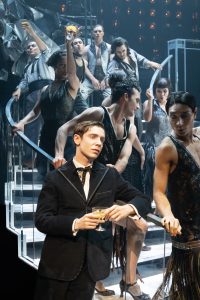
Tom’s lover Myrtle (Solea Pfeiffer of the national tour of “Hamilton”), is a more minor character in the book, but in the musical Pfeiffer delivers a showstopping performance that establishes Myrtle as a leading lady. The tension between Myrtle and George Wilson (Matthew Almira of Broadway’s “Beautiful: The Carole King Musical”) is explored in the striking numbers “Valley of Ashes” and “What of Love, What of God,” which makes Myrtle’s affair with Tom seem understandable, yet the musical also underscores how materialistic and demanding of her husband she is.
George, meanwhile, who appears weak throughout the story, shows his strength and comments on the inequality of American society in his powerful solo “America, She Breaks” toward the end of the performance.
Given that Fitzgerald’s novel is told through Nick’s perspective, readers only know the bubbly facade that Daisy puts on for Nick and may not grasp the unhappy marriage of Myrtle and George, believing instead that Myrtle is indecent and George is neurotic. The musical instead delves into not only Jay, but also people who were written as two-dimensional characters, which makes the musical more modern and thought-provoking.
Jay’s smile and the green light outside of Daisy’s house are significant in the book, but only receive mere mentions in the show and are rather unnecessary, as are some of Jay’s numerous solos. Many of the energetic and engaging scenes mirror those in the book, however, including the lyrics of the breathtaking final song, “We Beat On,” which Welch drew from the iconic last paragraphs of the book
“Gatsby: An American Myth” takes a talented cast and crew that embraces Fitzgerald’s ideas while introducing new ones to their fresh and gripping production.
(“Gatsby: An American Myth” at American Repertory Theater in Cambridge, through Aug. 3, 2024. For tickets or more information go to the A.R.T. website HERE.)
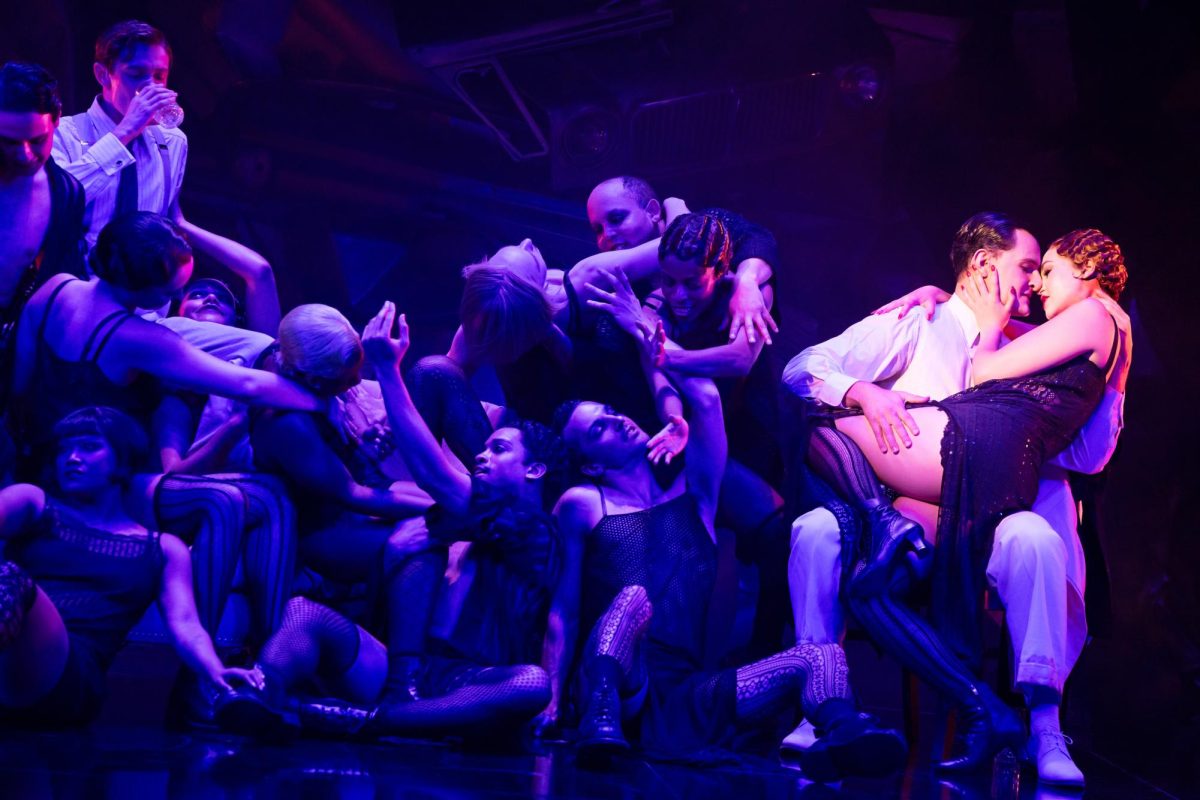
–June 21, 2024–


